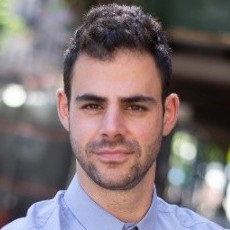3 Interview Tips from a Software Engineer Recruiter

At Sabio, a premier software development bootcamp, we train our students to not only be able to do code but also to successfully prepare them for the interview process. That’s one of the reasons why we invited Will Jacobson to be our third guest in our tech series. With a software engineer career spanning 4 years, Will has been on both sides of the interview table and he gave us insightful interview tips that will help you stand out.
1. Ask the Right Questions During the Interview
Everyone that’s being interviewed for the position that you applied for probably has the same set of skills as you do or even better. One way to stand out is by asking the right questions.
Will advises, “It's so important to be engaging when you're being interviewed and always have questions about the company and about exactly what they're looking for and scrutinizing them. Because we want to know that you also know who you are and know what you're looking for.
We really look for people who we think will wind up establishing ownership around a certain area of our platform because of interests that they have. And I think you won't necessarily know how to showcase without asking questions about the company.”
2. Engage the Interviewer - Break It Down!
No matter how prepared you are studying up on algorithms, there’s a high chance that you may be given a coding problem that stumps you. In such an instance, engage the interviewer. Break it down into bits and ask questions as you explain your thinking. It’s another way for them to get to know you and collaborate with you which lets them experience how working with you will feel.
“I've wound up getting callbacks in interviews I never would have expected because of doing that,” he affirms.

3. Brand your Career Switch
Having to explain a gap or a career switch to interviewers makes a lot of people nervous. Spin your resume to highlight details from your previous profession which are still applicable in your present career. Will had spent 7 years in his previous profession which indicated that he is someone that is disciplined and committed.
Being able to paint a positive picture of why you switched careers will erase any doubts that you’re confused and undependable. For Will, he branded his switch by showing that he didn’t feel like he was adding any value to the world in his previous career and when he became a software engineer, he felt like he was finally making a powerful contribution. “That's a story that would have people nodding along.”
If you were fulfilled and successful in your previous profession, another way to brand your story is to show the success that you had in that field and follow that up by explaining that you felt that you had grown as much as you could in that industry and wanted a different challenge, hence the switch.
How to Know Whether the Recruiting Company is the Right Fit for You
As much as you want a job, you want to work in a company where the culture and management will support you to perform at your best. You don’t want to start working at a new job and realize that you made a mistake accepting the offer. Besides research, one of the best ways to figure whether the recruiting company is a match for you is to:
- Be clear about what you are looking for. For example, if you want to work full-time from home then be clear about that. Don’t make assumptions or think that once you get the job, you can convince them to let your work from home if your contract states otherwise.
- Ask about the culture of the company. You should research the company’s mission and values beforehand so you can ask specific questions about them, during the interview, to see whether their values align with yours.
- Ask about the tasks you’ll be handed and the onboarding process. A few questions that Will suggests an interviewee should ask are, “How are you laid out? What will I be doing for the first six months? What is your onboarding process like?
And then when they answer that, then ask, ‘So are these projects that are spec’d out and ready to go or are they still a vague roadmap in the product realm?’”
Will Jacobson made the transition from being an Isotope Geochemist to a Web Developer by enrolling in a 4-month coding bootcamp. Since then, he’s worked at Prescriptive Data for two and a half years as a Full Stack Web Developer and Data Acquisition Team Lead. He’s now a Senior Software Engineer in California at a startup called Currency.
Listen to our podcast:
https://soundcloud.com/wesabio
Contact us to find out more about our programs:
https://sabio.la/contact
Enroll:
https://sabio.la/apply
Posts you might like
- Navigating the Tech Job Market: Insights from Sabio Alumni and Cybersecurity Opportunities
- Embracing the Climb: A Leader's Growth Mindset Journey
- This is the Perfect Time to Dive into Coding and Automation, This is Why!
- Troubleshoot Like a Pro: The Art of Debugging in Programming
- Beyond Bootcamp: Diverse Career Avenues in Tech
- Spotting Burnout in Tech Job Hunts: 6 Warning Signs & Ways to Overcome It
- Get Hired: Essential Knowledge for Emerging Programmers
- 7 Steps to Build a Personalized Continuous Learning Plan for Coders
- Empower Your Journey: Benefits of Remote Code Bootcamps
- Proactive Steps: Daily Rituals for the Job-Hunting Programmer
- Don't Sabotage Your Tech Job Search: Mistakes to Skip
- Unleashing Opportunities: How Bootcamp Career Services Propel Success
- From Lines to Offers: How Your Coding Experience Shapes Market Value
- Optimizing Success: Your Attitude in Coding Bootcamps
- Roadmap to Success: Tech Job Hunt with a Coding Bootcamp Mentor
- Crafting Your Tech Startup Roadmap from Bootcamp Grad
- Tips for Creating a Resume That Gets Interviews for High-Experience Jobs After Coding Bootcamp
- Accelerate Your Career: Embrace Bootcamps for Real-World Programming Skills
- The Coding Craft: Essential Skills Learned at Bootcamps
- Bootcamp Bonds: Tapping into Networks for Tech Employment
- Coding Confidence Booster: The Benefits of Coding Mock Interviews
- Programming by the Clock: The Impact of Effective Time Management
- Coding Freedom: The Value of Learning at Your Own Speed
- Calm Code Journey: Overwhelm-Free Bootcamp Success
- Polish Your Pitch: Tech Interview Communication Essentials
- Inside the Loop: Coding Bootcamps and Tech Industry Strategies
- From Zero to Hired: Decode the Experience Question in Tech Interviews
- Solving the Puzzle: Refining Your Problem-Solving as a Programmer
- The Art of Practicality: Using Coding Languages Without Overlearning
- Practice Makes Perfect: The Key to Software Engineering Brilliance



